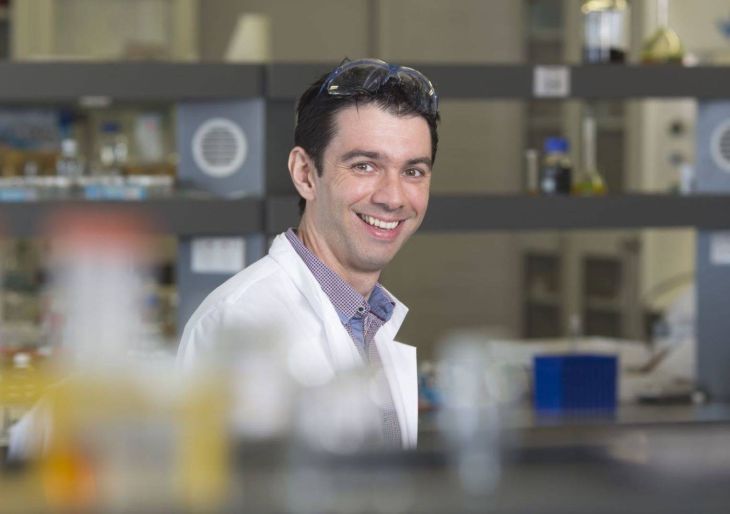Professor Cyrille Boyer from UNSW Engineering has been awarded $2.7 million to conduct ground-breaking research on light-driven manufacturing for 3D printing projects.
“This Laureate program will result in the direct production of advanced 3D printed objects with tuneable properties and functions by exploiting different wavelengths of light,” Professor Cyrille Boyer said. Photo: UNSW.
UNSW Sydney Professor Cyrille Boyer has been awarded a prestigious Australian Laureate Fellowship by the Australian Research Council (ARC).
The scheme supports world-class researchers to conduct research in Australia, forge strong links across the research community both local and international, and train and mentor early-career researchers. The 16 Fellows announced this year will share $48.6 million to lead research projects over five years.
UNSW Dean of Engineering Professor Stephen Foster congratulated Prof. Boyer on receiving the prestigious Fellowship.
“Laureate Fellowships are highly coveted in the research sector, and I’m delighted that Professor Cyrille Boyer has been recognised. Cyrille is a leader in his field of polymer chemistry, with a focus on pioneering practical, industry-relevant solutions to globally important problems,” Prof. Foster said.
Prof. Boyer aims to develop a suite of chemical reactions independently activated by specific colours of light to produce advanced 3D printed objects. These innovative tools will revolutionise 3D printing methods, creating a new era of advanced manufacturing.
The technology developed in this Laureate program will provide processes, which will reduce energy consumption and have a reduced environmental footprint, in comparison to traditional manufacturing processes.
“This Laureate program will result in the direct production of advanced 3D printed objects with tuneable properties and functions by exploiting different wavelengths of light,” Prof. Boyer said.
“By exploiting different wavelengths of light, we will create a whole range of programmable and reprogrammable materials, such as new forms of self-healing polymer materials which will be used to make parts for cars, electronics, airplanes, batteries, laptops and smartphones. This will reduce the production of waste, and therefore have a significant environmental impact.”
In his previous work, Prof. Boyer’s research has led to the development of a more sustainable process to build polymers, which are chains of small, repeating molecules. The process is inspired by photosynthesis – the same process used by plants, algae and certain bacteria to convert sunlight into chemical energy, enabling the fabrication of polymers.
Polymers can find a broad range of applications in nanomedicine, energy and engineering materials.
The process developed by Prof. Boyer can precisely control when and where to introduce the next link into polymer chains simply by shining a light. By using lights of different wavelengths, or intensities, these processes can create more complex macromolecules for high end-applications.
This Laureate program will build on these early innovations to create functional materials, which will be used in the preparation of new batteries, electronic devices, materials with greater resilience and in the development of new drug delivery systems.
Read more UNSW tops nation with 5 ARC Laureate Fellows
ARC Chief Executive Officer, Ms Judi Zielke PSM, said that Laureate Fellows are at the forefront of the national research landscape and are essential in expanding Australia’s knowledge base and research capability.
“The Australian Laureate Fellowship scheme is fundamental to the ARC’s Discovery Program, which supports ground-breaking contributions to a researcher’s field, from biotechnology to social science” Ms Zielke said.
“The scheme allows researchers to establish strong connections with research counterparts and industry partners, which is an integral part of providing an excellent research training environment and high-quality mentorship for early-career researchers.”







